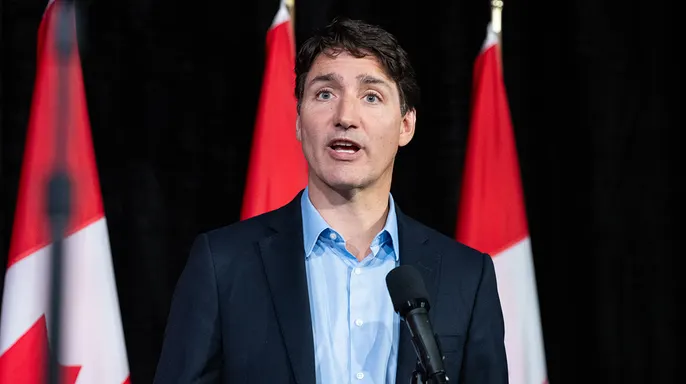Canadian Prime Minister Justin Trudeau’s Liberal Party suffered another setback on Monday. Bloc Québécois candidate Louis-Philippe Sauvé narrowly won the LaSalle-Émard-Verdun seat, defeating Trudeau’s endorsed candidate, Laura Palestini. The tight race highlights growing challenges for the Liberal Party as it prepares for upcoming national elections.
A Shocking Defeat for the Liberals
In a highly contested election, Louis-Philippe Sauvé claimed victory by a slim margin of just 248 votes, according to Elections Canada. Sauvé, representing the Bloc Québécois, secured 28% of the vote, ousting a seat traditionally held by the Liberals.
“It would have been nicer to be able to win,” Trudeau remarked in a press conference held in Ottawa on Tuesday. Despite the loss, Trudeau maintained an optimistic outlook, stating, “But there’s more work to do.”
The Growing Popularity of Bloc Québécois
The Bloc Québécois, a party that advocates for the interests of Quebec and has historically called for the province’s independence, is gaining traction in various regions. In an emotional press conference, Sauvé reflected on his win: “It was a roller coaster night; I had many emotions. But today I’m feeling good. I’m grateful to the people in my neighborhood for having chosen me as their MP.”
The victory represents more than just a shift in the political landscape of LaSalle-Émard-Verdun; it’s part of a broader trend of the Liberal Party losing ground, especially in strongholds like Quebec and Toronto.
Trudeau’s Leadership in Question
Prime Minister Justin Trudeau, who has led Canada for nine years, is starting to feel the pressure of rising opposition. A recent Ipsos poll tracking the “best Prime Minister” revealed that 26% of Canadians support Trudeau, compared to 45% who back the Conservative Party’s candidate, Pierre Poilievre. These figures suggest that Trudeau may face a tough fight to retain his position as Prime Minister in the next general election, scheduled for October 2025.
“The big thing is to make sure that Canadians understand the choice they get to make in the next election,” Trudeau emphasized, acknowledging the challenges ahead for his party.
A Tough Road Ahead for the Liberals
This latest defeat follows several others over the summer, including the Toronto-St. Paul’s by-election, another long-time Liberal seat that narrowly went to the Conservatives. The trend suggests a potential shift in the political dynamics across Canada as Trudeau and his Liberal Party prepare for the following primary election.
More Challenges Ahead for Trudeau
As Trudeau looks toward re-election in 2025, these losses highlight the growing discontent among voters. Though he remains hopeful, stating that “there’s more work to do,” the Prime Minister will need to work harder than ever to maintain the trust of Canadians. With rising competition from parties like the Bloc Québécois and Conservatives, the road to victory will be anything but easy for the Liberals.







